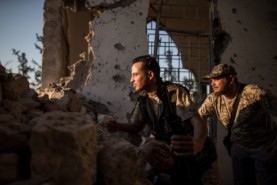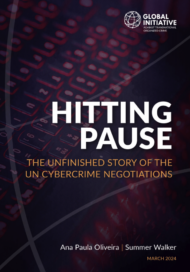Event Details
Where
CONFERENCE ROOM E, UN SECRETARIAT
Posted on 13 Sep 2019
Speakers:
H.E. Dr. Mohammad Mahmoud Abubakar, Minister of Environment, Nigeria
H.E. Mr. Jürgen Stock, INTERPOL Secretary-General
Commissioner Luis Carrilho, United Nations Police Adviser
Ms. Summer Walker, New York Representative, Global Initiative against TOC (moderator)
The 2030 Agenda recognizes that there can be no sustainable development without peace and security, and no peace and security without sustainable development. Climate change poses one of the greatest challenges to these mutually reinforcing objectives and must be seen through an intersectional lens. Efforts to address climate change must consider human and environmental security, including environmental crime and the role of organized crime.
As global temperatures rise, conflicts stemming from drought, desertification, land degradation and food insecurity are increasing. People leaving their homes to flee these crises often compete with local populations for scarce resources, exacerbating inter-communal tensions. The loss of arable land and livelihoods leaves youth more vulnerable to recruitment and radicalization by armed groups or victimization by organized criminals, while fewer socioeconomic
opportunities leads to more exploitation of natural resources.
Accelerating the 2030 Agenda, particularly SDG 16 on peace, justice, and strong institutions, is critical for the UN, INTERPOL and their Member States. The Security Council has noted the adverse effects of climate change on stability in many contexts that host both UN peace operations and INTERPOL National Central Bureaus, including the Lake Chad
Basin, Somalia, West Africa and the Sahel and Sudan. On the occasion of the 74th session of the General Assembly, when Secretary-General Antonio Guterres will convene a Climate Summit, and the 10th anniversary of the Cooperation Agreement between the UN Department of Peace Operations and INTERPOL, this panel discussion will explore the intersectionality between climate change and security. It aims to identify innovative ways in which the UN Police, INTERPOL and affected countries can mitigate the associated transnational threats to achieving peace and security, while contributing to the realization of the 2030 Agenda and INTERPOL’s Global Policing Goals.
Please RSVP to shao.ziyun@un.org by 18 September 2019



